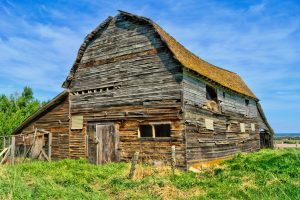Homeowner Associations: Rules and Responsibilities
Welcome to the world of Homeowner Associations (HOAs). These communities are becoming increasingly popular, as they offer a sense of security, community, and shared amenities for homeowners. However, with the many benefits come rules and responsibilities that homeowners must adhere to. In this article, we will take a closer look at what Homeowner Associations are, their regulations, and the responsibilities of homeowners who live in these communities.
What are Homeowner Associations?
In simple terms, a Homeowner Association is a governing body that manages a community of single-family homes, townhouses, or condominiums. This body is responsible for maintaining and managing common areas, enforcing regulations, and collecting fees from homeowners. The HOA board is usually made up of homeowners who volunteer their time to maintain and run the community.
Types of Homeowner Associations
Homeowner Associations can come in various forms, such as planned communities, gated communities, and age-restricted communities. Each type has its own set of rules, regulations, and fees that homeowners must abide by.
Rules and Regulations
One of the main roles of an HOA is to create and enforce rules and regulations for the community. These rules are put in place to maintain the quality of life and preserve the value of the properties within the community. While the specific rules may vary, some common regulations include:
Architectural Guidelines
Most HOAs have strict guidelines on the appearance of the homes within the community. Homeowners must obtain approval from the HOA before making any exterior changes to their property. This helps to maintain a uniform and visually appealing aesthetic throughout the community.
Use of Common Areas
HOAs typically have common areas, such as swimming pools, playgrounds, and clubhouses, that are available for all homeowners to use. These areas usually have rules regarding their use, such as age restrictions, guest policies, and noise regulations.
Maintenance and Landscaping
HOAs are responsible for the maintenance and upkeep of the common areas, but homeowners are also expected to maintain the exterior of their properties to a certain standard. This may include rules about landscaping, property cleanliness, and garbage disposal.
Homeowner Responsibilities
While HOAs have the responsibility of managing the community, homeowners also have their own set of responsibilities to ensure the smooth running of the association.
Pay HOA Fees
Homeowners are required to pay regular HOA fees, which cover the costs of maintaining and managing the community. Failure to pay these fees can result in late fees or even legal action.
Follow Rules and Regulations
As mentioned earlier, homeowners must abide by the rules and regulations set by the HOA. Failure to do so can result in penalties or restrictions on certain privileges, such as the use of common areas.
Participate in Community Decisions
Homeowner participation is vital in the decision-making process of the HOA. By attending meetings, voicing concerns or suggestions, and volunteering for committees, homeowners can help shape the future of their community.
In Conclusion
Homeowner Associations play an important role in maintaining the quality of life and property values within a community. Homeowners must understand and adhere to the rules and responsibilities set by the HOA to ensure the smooth running of the association. By working together, HOAs and homeowners can create a harmonious and thriving community for all residents.
Remember, if you are considering purchasing a property within an HOA community, be sure to carefully read all the rules and regulations before making your decision. This will help you to determine if the HOA’s rules align with your lifestyle and preferences.










